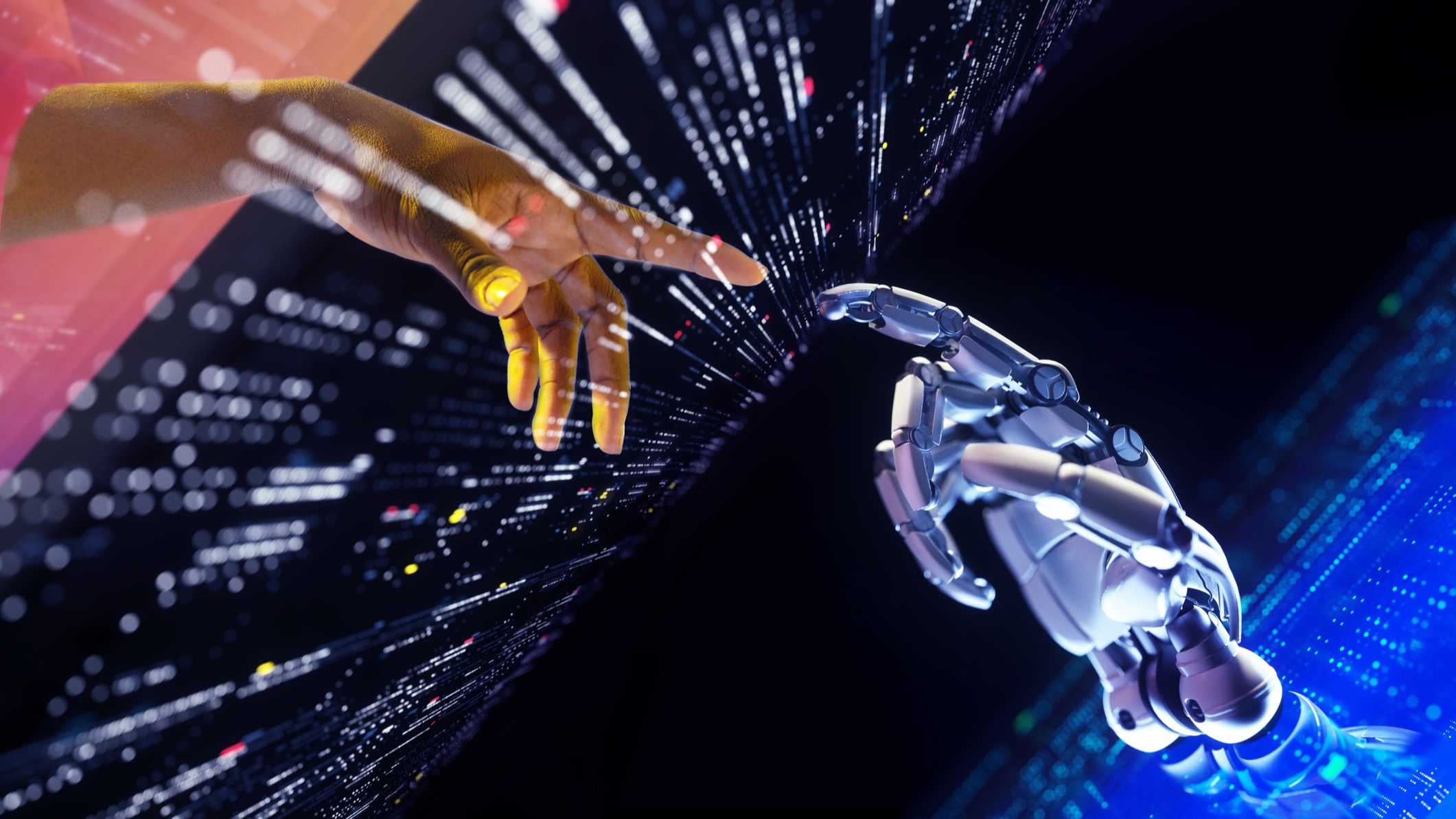Last year AI entered our lives — is 2024 the year it'll change them?
Artificial intelligence (AI) will be featured heavily in products at CES 2024, with devices and software benefiting from highly sophisticated in-built AI tools. So is 2024 the year AI changes our lives?

Get the world’s most fascinating discoveries delivered straight to your inbox.
You are now subscribed
Your newsletter sign-up was successful
Want to add more newsletters?

Delivered Daily
Daily Newsletter
Sign up for the latest discoveries, groundbreaking research and fascinating breakthroughs that impact you and the wider world direct to your inbox.

Once a week
Life's Little Mysteries
Feed your curiosity with an exclusive mystery every week, solved with science and delivered direct to your inbox before it's seen anywhere else.

Once a week
How It Works
Sign up to our free science & technology newsletter for your weekly fix of fascinating articles, quick quizzes, amazing images, and more

Delivered daily
Space.com Newsletter
Breaking space news, the latest updates on rocket launches, skywatching events and more!

Once a month
Watch This Space
Sign up to our monthly entertainment newsletter to keep up with all our coverage of the latest sci-fi and space movies, tv shows, games and books.

Once a week
Night Sky This Week
Discover this week's must-see night sky events, moon phases, and stunning astrophotos. Sign up for our skywatching newsletter and explore the universe with us!
Join the club
Get full access to premium articles, exclusive features and a growing list of member rewards.
We've come a long way since OpenAI launched ChatGPT in late 2022. Back then, generative artificial intelligence (AI), exemplified by the chatbot-style user interface, was more or less a glorified toy.
Since then, the biggest tech companies in the world have been locked in an arms race to build better and more useful models, from Microsoft's integration of GPT-4 into Windows 11 to Google's Gemini AI — launched just a few weeks ago.
You can now use AI-powered image generation in MS Paint, remove backgrounds in Photos and can even add an AI-powered "Microsoft Clippy" to Word. But this is just the beginning — Microsoft, on the eve of the 2024 Consumer Electronics Show (CES), announced that many new laptops will have a keyboard key that opens Windows Copilot, a built-in AI assistant.
It's the first change to the Windows keyboard in three decades — which shows Microsoft is backing this new breed of AI to the hilt. Microsoft representatives said the introduction of this key is a pivotal moment "where Copilot will be the entry point into the world of AI on the PC."
This development is just one example of a way AI will become much more integrated into our daily lives, and used by a broader audience, in 2024, experts told Live Science.
Related: 3 scary breakthroughs AI will make in 2024
In 2023, "we saw a lot of really superficial applications of AI," Finbarr Timbers, a researcher at Artificial Fintelligence who specializes in AI and deep learning, told Live Science in an email. "Tools like ChatGPT or Stable Diffusion are the most basic applications of these AI models, and once we figure out more sophisticated user interfaces, it'll enable users to do much cooler things. Building these tools takes a lot of time, and iterating with users, so I think we're going to start to see these tools come online in 2024."
Get the world’s most fascinating discoveries delivered straight to your inbox.
Although he described the addition of a Copilot keyboard key as a "marketing ploy," he added that it represents the right way in which tech companies should proceed with AI.
Better integration
Tom Cheesewright, an author, applied futurist and founder of a company called Book of The Future, said he expects two major shifts in generative AI this year — which mean AI will have "a greater impact and a greater reach into more people's lives."
"Just like search engines got better and better at returning the information we want from a simple string, each generation of AI is getting better at returning what we want from a prompt, whether that's the right textual content, or the right content and quality of image," Cheesewright told Live Science in an email.
The second shift is about access, he added. Once embedded in digital interfaces, AI "can infer what you want from learning from your interactions. Especially if it knows your history, social graph etc. We're talking about machines that answer questions before you have asked them."
Right now not everyone is using AI in their daily lives like they would social media sites, but we might be on the cusp of something similar, Timbers said.
"In early 2023, I was talking about ChatGPT, and none of my friends or family had any idea what I was talking about. Then, at Christmas dinner, everyone was talking about ChatGPT! So that's what I want to keep an eye on — how is AI reaching the non-early adopters?"
Beyond the inclusion of a Copilot keyboard key, other brands are using CES 2024 to showcase this idea of AI integration. Chipmakers like Intel, AMD and Qualcomm have created CPUs with AI built into the hardware. Samsung has also announced an AI-powered fridge that will be unveiled at the show. All these examples show that AI integration is here to stay.
Better models
Cheesewright also thinks that this is the year when integrated AI will increase our productivity. He asks, for example: "What can a medical researcher do with an AI co-pilot that pursues their line of thought, only with access to swathes of data, modeling tools, and no need to sleep?"
Timbers added he has found Github Copilot — the AI-augmented assistant for programmers that helps you write code — to be "invaluable." It could well be that the AI-based conversations at the dinner table next Christmas revolve around friends and family from different lines of work swapping notes on why AI has been so invaluable to them this year.
The rise of multimodal models — meaning AI systems that understand multiple types of input and output media, such as both text and images — will also give these tools more context from which to learn and understand, leading to better results. Such systems include Google's Gemini AI — which has three versions. The least computationally intensive of these large language models, Gemini Nano, will be deployed in new Pixel smartphones and is expected to be rolled out to the broader Android ecosystem in the future.
Although 100 million people have used ChatGPT, AI will only begin to be transformative when it's "embedded in the digital interfaces we use every day," Cheesewright said, in various ways from word processing to banking to e-commerce.

Keumars is the technology editor at Live Science. He has written for a variety of publications including ITPro, The Week Digital, ComputerActive, The Independent, The Observer, Metro and TechRadar Pro. He has worked as a technology journalist for more than five years, having previously held the role of features editor with ITPro. He is an NCTJ-qualified journalist and has a degree in biomedical sciences from Queen Mary, University of London. He's also registered as a foundational chartered manager with the Chartered Management Institute (CMI), having qualified as a Level 3 Team leader with distinction in 2023.
 Live Science Plus
Live Science Plus










